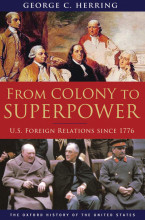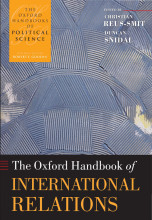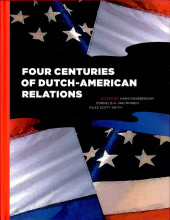Summary: From Colony To Superpower: U.s. Foreign Relations Since 1776 | 9780199743773 | George C Herring
- This + 400k other summaries
- A unique study and practice tool
- Never study anything twice again
- Get the grades you hope for
- 100% sure, 100% understanding
Read the summary and the most important questions on From Colony to Superpower: U.S. Foreign Relations since 1776 | 9780199743773 | George C. Herring
-
1 Foreign policy and the birth of the republic 1776-1778
-
1.1 I
This is a preview. There are 2 more flashcards available for chapter 1.1
Show more cards here -
on what base did the new westphalia system change the reasons for fighting and the means of combat?
nation states acted on the basis of realpolitik after this rather than religious considerations: changing sides in alliances to suit their foreign policy goals. balance of power -
why did the seven years war made america
conflict originated in the colonies, fighting americans andfrench. spread to europe, coalitions, britain won, americans played a big part--> equal partners in empire-->war exhausted GB--> more tax to americans--> sparked revolutions-->common cause among colonists. -
ties america europe
mainly commercial--> isolationist of problems -
founding fathers believed they build an empire on
consent not coercion. an empire without a metropolis. break the shackles of despotism. through free trade and enlightened diplomacy--> new world order -
1.1.1.1 III
-
what brought a dramatic shift in british commercial policy
shelburnes fall from power -
who whas the most open to the us trade
france -
2 the new republic in a hostile world, 1789-1801
This is a preview. There are 1 more flashcards available for chapter 2
Show more cards here -
george washingtons 1796 musings about the us that was so powerful that none could make us afraid reflected
the fear that gripped the nation throughout the turbulent 1790's. a time of dire threats form without and better division within. and put in words the vision of an empire invulnerable to such dangers -
how did washington and adams set important precedents in management of foreign and national security policy
they were concilatory at the brink of war and they managed to avert hostilitities with and wring important concessions from both england and france. they consilidated control of western territiroies awarded in the 1783 peace treaty with britain, laying a firm foundation for what washington called the future grandeur of this rising empire -
2.1 I problems internally
This is a preview. There are 8 more flashcards available for chapter 2.1
Show more cards here -
who established the principle of presidential direction of foreign policy
washington -
who created a department of state to handle the day to day management of foreign relations as well as domestic matters not under the war and treasury departments
washington
- Higher grades + faster learning
- Never study anything twice
- 100% sure, 100% understanding

































